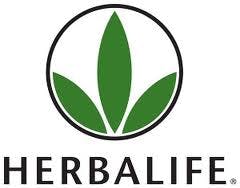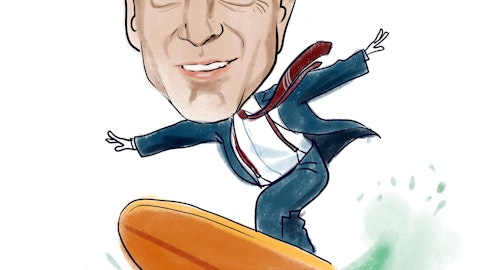
A recent heated, verbal back-and-forth between billionaire investors Carl Icahn and Bill Ackman on CNBC over the legitimacy of Herbalife and its stock had viewers and traders on the floor on the New York Stock Exchange captivated as the two men traded personal jabs. The fiery feud stems from Ackman’s hedge fund Pershing Square’s bearish investment in Herbalife.
Ackman, short the stock, maintains Herbalife is nothing more than a pyramid scheme. In mid-December 2012, shares plummeted to around $26 from around $42 a share after Ackman made public that he holds a huge short position in Herbalife.
During the roughly 30 minutes of air time on CNCB, Icahn called Ackman a lair adding, “He’s got one of the worst reputations on Wall Street.” Tough talking Icahn alleges Ackman unduly and intentionally attempts to, and frequently succeeds at, forcing companies’ stock price down by making public that he holds a massive short position in an underlying stock.
Ackman retorted to the allegations by saying, “He can try to scare my investors, which it sounds like he is attempting to do on this call. We take prudent risk at Pershing Square, we are an unlevered fund, and we are very thoughtful in the way that we do our business.”
Shares of Herbalife closed little changed the day the two men went at it.
Meanwhile, CNBC hasn’t garnered so much attention since the Internet era, which gave birth to a bevy of high-flying tech companies, many of which have since gone bust.
Despite the tepid response to the on-air smackdown, shares of Herbalife have been volatile over the last year, gyrating between a low of $24.24 and a high of $73.
The global nutrition company is no stranger to controversy and bad press. The fresh spate of eye-brow raising allegations has prompted Herbalife executives to staunchly, yet not quite convincingly, defend the firm yet again. In 1985, just five years after its inception, the company was sued by the California Attorney General for making inflated claims about the effectiveness of its products. Herbalife settled for $850,000, without admitting to any offenses. (While headquartered in Los Angeles, the company is incorporated in the tax and privacy friendly Cayman Islands).
Founder Mark Hughes, who began the company by selling products from the trunk of his car in 1980, died at the age of 44 on May 21, 2000, from an accidental overdose of a cocktail of alcohol and an anti-depressant.
In ensuing years, a handful of lawsuit plagued the company including one from distributors that accused the company of “essentially running a pyramid scheme; another one challenged the marketing practices of certain distributors; and others claimed the company’s products caused a bevy of side effects, some very serious such as liver failure.
It is mind boggling that Hebalife continues to grow and make money amid all the controversy. The company fruitfully sells nutrition, weight management and personal care products through a network of some 2.7 million independent distributors in more 87 countries, some of whom earn profit on products sales and additional commission from a multi-level marketing compensation structure.
But maybe it really isn’t all that surprising. The definition of a pyramid scheme is a “money making enterprise in which the main source of revenue is through the recruitment of additional sales representatives, distributors and other participants who pay fee to sign up, rather than through the sale of actual products.”
Investors looking for a healthy investment in the nutritional or beauty care segment ought to look at Herbalife’s peers who have a much better reputation, track record and balance sheet. The Procter & Gamble Company (NYSE:PG), with a $200.28 billion market cap and income of some $10 billion, and Colgate-Palmolive Company (NYSE:CL) with a $52.04 billion market cap and income of more than $2 billion are much more sound investments.
Procter & Gamble, after months of lagging behind competitors, just reported its third consecutive quarter of impressive gains. It continues to report robust revenue strength thanks to strategic and effective cost cutting efforts, as well as through the introduction of new and improved brands such as its novel Tide mess-free laundry pods and it more lavish and pricey Pantene shampoo, both of which have been well received.
Colgate just reported healthy profit growth for all of 2012, attributed to a growing presence in both emerging and developed markets. Its global share in the toothpaste and toothbrush market rose to 44.6%. Outlook for the coming year looks promising as the company continue to expand in less mature overseas markets while cashing in rising incomes and changing lifestyles in more affluent areas.
Herbalife carries the weight of uncertainty and pales in sales to these two competitors, sporting a market cap of $4.7 billion and questionable income of $464 million.
In reaction to the Federal Trade Commission’s move Jan. 28 to shut down Fortune Hi-Tech Marketing of Lexington, KY, a national multi-level marketing company the FTC called a “global pyramid scheme” shares of Herbalife sank 8% on the news. While unrelated, the slump perhaps suggests Herbalife actually can relate.
It’s been said that life is 10% what happens to you and 90% how you respond to it. If you happen to be thinking about Herbalife stock as an investment, respond to that thought by quickly putting it out of your mind.
The article The Bill and Carl Show—er—Showdown originally appeared on Fool.com and is written by Diane Alter.
Copyright © 1995 – 2013 The Motley Fool, LLC. All rights reserved. The Motley Fool has a disclosure policy.





